HTML Heroes 3rd & 4th Class Programme Additional Lessons
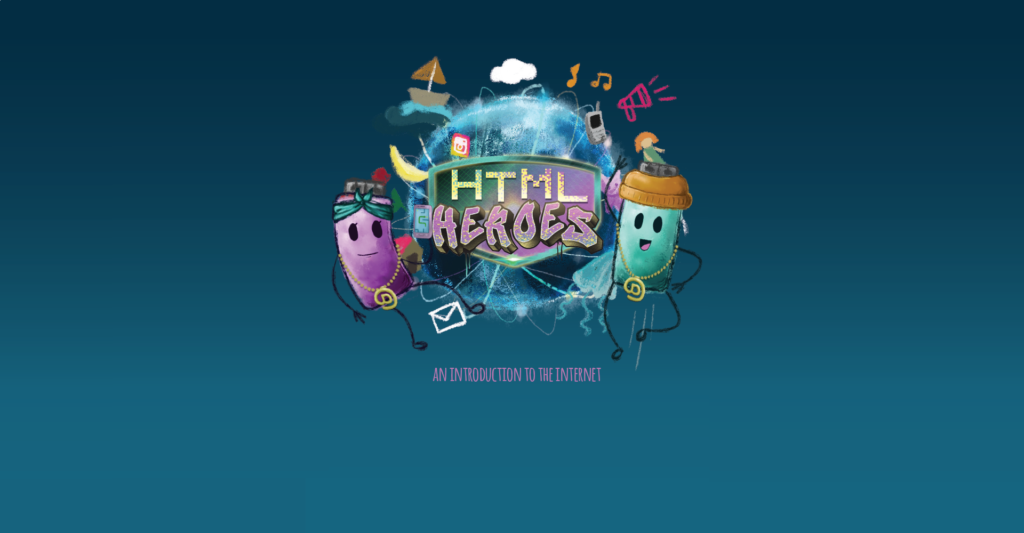
About
Webwise have created two new additional lessons to the 3rd & 4th Class edition of the HTML Heroes Online Safety Education Programme; Lesson 9. Chatting Online and Lesson 10. Playing Online. These additional lessons are designed to complement the original lessons of the programme where the online safety themes and topics covered could be used as a follow on from the original lessons.
The centrepiece for each of the additional lessons is a short story featuring the HTML Heroes, Ruby and Archie, as they navigate the online environment and various internet safety themes and topics that arise as they do. These stories contain much of the exposition and key learning points of the lesson. Corresponding lessons from the original programme will be outlined in the Teacher Notes section of each new lesson.
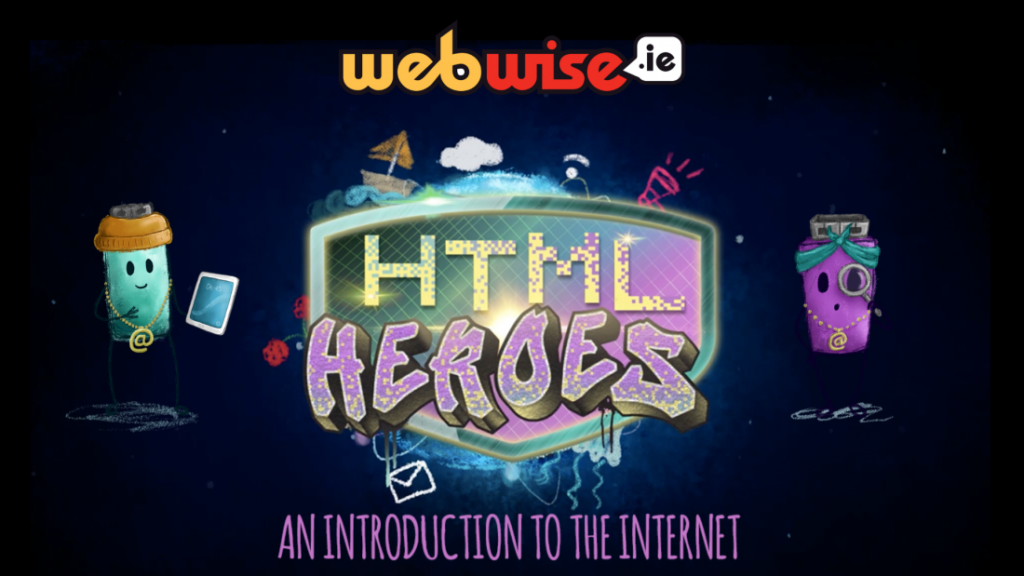
Lessons
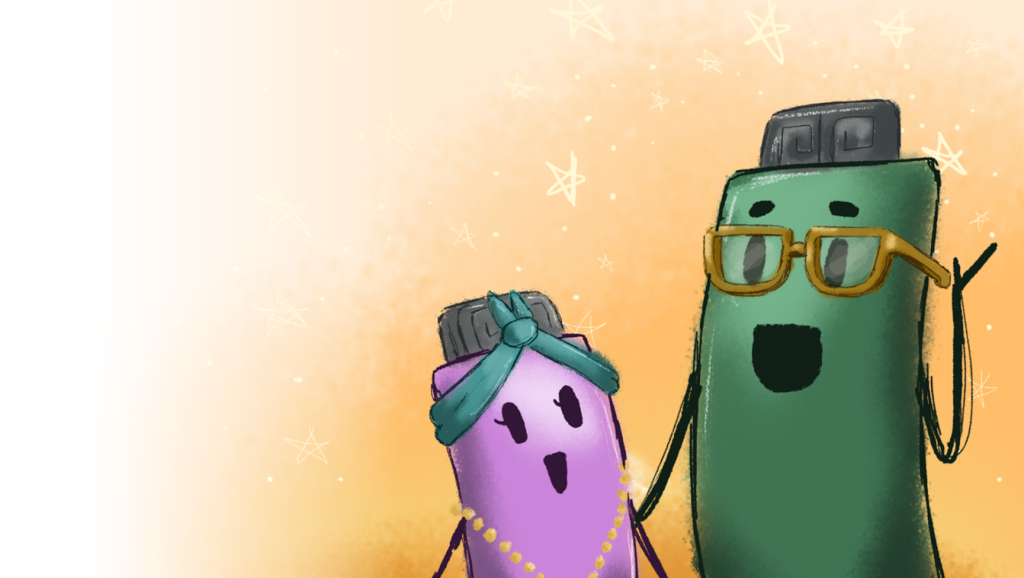
This lesson aims to promote being kind and respectful when communicating online, especially with friends and classmates. It will also examine what friendship online looks like and explore different forms of online communication including messaging, video and pictures.
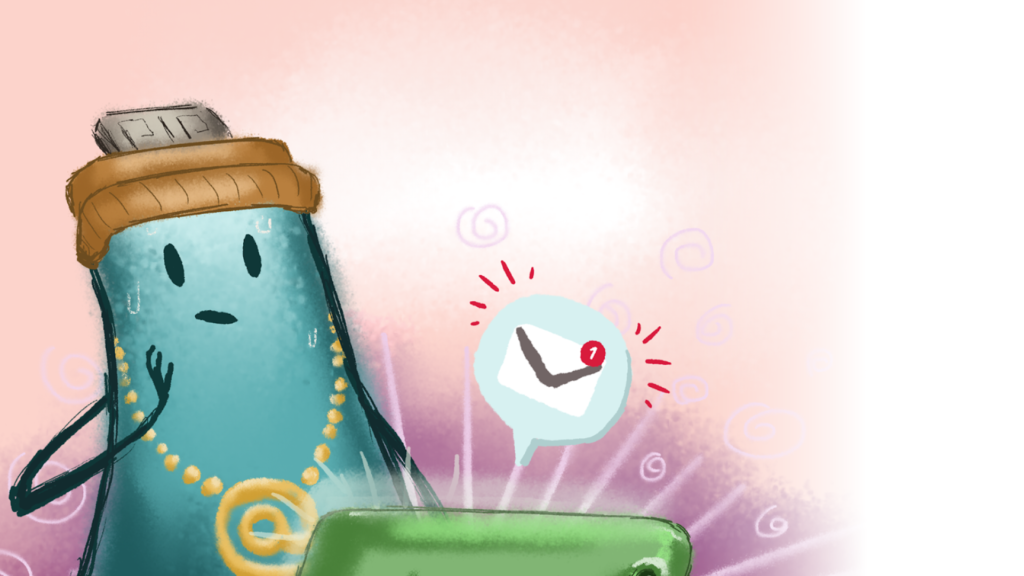
This lesson will explore gaming online and introduce pupils to the topic of privacy and security. Pupils will develop strategies for profile privacy, information sharing and how to stay safe while playing online. Pupils will also gain an understanding of the importance of asking permission before purchasing or accessing games online.
HTML Heroes Additional Lessons
Lesson 9 Chatting Online
Purpose
This lesson aims to promote being kind and respectful when communicating online, especially with friends and classmates. It will also examine what friendship online looks like and explore different forms of online communication including messaging, video and pictures.
Learning outcomes
When they have finished this lesson, pupils will:
– Recognise that how you treat people doesn’t change in the online world – being kind and showing respect to friends and others is just as important online as it is offline.
– Describe what appropriate online friendship and communication looks like.
– Understand how mean comments, exclusion can make others feel and that it is wrong to use bullying behaviour.
Curriculum Links
SPHE 3rd & 4th Class Curriculum
Strand: Myself and others
Strand Unit: My friends and other people
– practise and recognise the importance of care and consideration, courtesy and good manners when interacting with others
recognise, discuss and understand bullying
– explore and examine ways of dealing with bullying
3rd & 4th Class Stay Safe Programme
The Stay Safe Programme is a personal safety skills programme for primary schools. Stay Safe is a mandatory resource and must be used within the context of the SPHE curriculum to cover relevant content objectives. This HTML Heroes Programme can be used as an additional support when teaching the prescribed Stay Safe Programme content.
– Topic 2. Friendship and Bullying
Continuing the lesson with the HTML Heroes: 3rd & 4th class edition
Resources needed
– Computer connected to projector/whiteboard
– Activity Sheet 1: Kind Online: Feels like, Looks Like, Sounds Like
– Reflection Template: Emoji Exit Ticket
– Take-Home Handout
– HTML Heroes Short Story: ‘Ruby becomes an Upstander’
Methodologies
Key vocabulary
Bystander – someone who sees something that is wrong but simply “stands by” and doesn’t do anything to support someone or speak up. A bystander will witness a situation/ behaviour but take no action.
Cyberbullying – is using digital technology to hurt or bully someone deliberately. Digital technology can include devices such as a smartphone, computer, tablet, game console.
Emoji – is a small digital image or icon used to express an idea or emotion.
Exclude – in an online context exclusion could involve blocking someone from a popular group such as a school or class group in WhatsApp or SnapChat, deleting them from friendship lists, and/or using ‘ignore functions’.
Ignore – to pay no attention or choose to not notice something or someone.
Kindness – being considerate and showing concern for the wellbeing and feelings of others.
Respect – treating someone with care and kindness and giving your attention to them; someone who is well liked or thought of.
Upstander – someone who not only recognises when something is wrong, but as a result, stands up for his/her beliefs by taking action. An upstander will help/support whomever is being hurt, or will speak up to correct the situation/make it right.
Teacher’s Note
Discussing Messaging and Social Media
It is important that the discussions in this lesson focus on online activities and communication, rather than on specific online services. You should try to focus discussions on the needs that motivate pupils’ internet use and not the tools they use to achieve these goals. In general, children use the internet to socialise, to share media, to find information, to play games, to communicate, and to learn. You should be aware that some of the children will be interested in using social networking and media sharing apps and tools for the first time. Many of them will be haggling with their parents for permission to do this. Your words may be brought home and used as part of these negotiations. In this context, it is better to talk about “sharing photos” than “using Instagram”.
Age Restrictions on Social Media
– Most social media platforms and services have a minimum age requirement, for the majority of these services it is 13 years old and some are set at 16 (WhatsApp).
– Under the new E.U. General Data Protection Regulation (GDPR), Ireland has now set the Digital Age of Consent to 16 years old. This is the age at which children can legally consent to companies/organisations processing their personal/data or information for example when you sign up to an online platform or social media account. For children under the age of 16, consent must be given/authorised by the parent or guardian of the child.
Activity 1: Discussion – Be Kind Online
Step 1. Begin by telling pupils that in today’s lesson we are going to look at being kind and respectful when communicating online, especially with friends and classmates. Ask pupils to think about what are some of the ways people can use the internet to communicate with family, friends and the wider world? Get feedback from pupils on this. Suggested examples include text messaging, video chatting, voice calls, posting comments, uploading video/pictures, writing blogs and remote or distance learning. Next, ask pupils what they think are some of the benefits of being able to use the internet to communicate with friends, family, school and the wider world? Suggested answers might include being able to see family who live far away, instant communication and the ability to communicate with people in real time, or the ability to share your opinions, hobbies with a wider audience and create communities online with other people who share similar interests.
Explain to pupils that while it’s great the internet provides lots of different ways for us to communicate including writing, talking, movement, pictures, but with GIFs, memes, emojis and bitmojis sometimes it can feel like chatting on the internet can take on a language all of its own. We must keep in mind that because we can’t always see or hear the person as we are chatting to them like we can in real life it’s easier for things to be misunderstood or taken the wrong way. That’s why it’s just as important to make sure we are kind and considerate of others feelings when chatting online as we are when chatting to people face-to-face.
Step 2. So let’s begin by discussing what kindness means. Make sure to explain that you’re talking about kindness in terms of how you behave towards people (or they behave towards you), not how you feel about someone, everyone deserves to be treated with kindness and respect. Distribute the Activity Sheet 1 and ask pupils to complete the Y chart on what being kind means to them. Prompt questions could include asking pupils to think about the last kind thing you did for someone else e.g. write a thank you note, surprise someone you know with baked treats or hold the door open for someone. Use the think-pair-share strategy to gather pupils’ feedback on this.
Step 3. Next, ask pupils to think about what kindness could look like online. Prompt pupils by asking them to think of a recent example of kindness they saw online – it could be keeping in touch with an elderly relative living on their own, giving someone a compliment, sharing good news with family and friends e.g. a picture or video of a birthday party, doing something for charity, etc.
Again, use the think-pair-share strategy to gather pupil feedback on this and collate responses on the whiteboard. Conclude by emphasising that how you treat people doesn’t change in the online world – being kind and showing respect to friends and others is just as important online as it is offline.
*There are many free mind-mapping tools available online such as Coogle (www.coggle.it) or Bubbl.us (www.bubbl.us).
Activity 2: HTML Heroes Short Story
Display the HTML Heroes short story: Ruby Becomes an Upstander on the whiteboard while you read through the story.
Step 2. Once you have finished reading the story, go through the discussion questions to help pupils reflect on the internet safety scenario and safety messages discussed in the story.
Ruby Becomes an Upstander – Discussion Questions
(a) How do you think Ruby felt when she read the nasty comment?
(b) Why was Ruby worried?
2. When Ruby told her dad what had happened, how did he respond?
3. Why did Ruby think that it was a good idea to be an upstander instead of a bystander?
4. (a) Are there different rules if someone says something online rather than in real life?
(b) Please explain your answer.
5. (a) Did sending a message to the bully and asking them to apologise make things better?
(b) Please explain your answer.
6. What can you do if you or someone else you know is being cyberbullied?
At the end of the story and discussion questions emphasise the Key Advice for Children being cyberbullied as outlined in the Stay Safe Programme:
STOP – don’t reply to the message but do take a screenshot
BLOCK– block the sender
TELL – a trusted adult
Teacher’s Notes on how to deal with cyberbullying:
Don’t reply to messages that harass or annoy you – Even though you may really want to, this is exactly what the sender wants. They want to know that they’ve got you worried and upset. If you respond with an even nastier message it makes them think that they really got to you, and that’s just what they want. They might even complain about you!
Keep the message – You don’t have to read it, but keep it. If you keep getting messages that upset you, you will need to have evidence in order to get help. Website owners, mobile phone companies and the Gardaí will all look for evidence before they will be able to take any action to help you.
Block the sender – You don’t need to put up with someone harassing you. If you are getting messages that upset you, you can block the person simply by clicking the block button. On some mobile phones you can block a caller’s number.
Tell someone you trust – Talking to your parents/guardian, friends, or someone you trust is usually the first step in dealing with any issue. In the case of school-related bullying messages you should also talk to a teacher you trust or a guidance counsellor. If you need to speak to someone straight away you can also call Childline on 1800 66 66 66. ISPCC Childline also offers a text support service (text ‘Talk’ to 50101) and an online chat service on https://www.childline.ie/ to help support young people.
Report the Problem – Report problems to the people who can do something about it. Responsible websites, social media apps, messaging apps and mobile phone operators provide ways for their users to report things such as bullying content or rude material.
Activity 3: Conscience Alley
Step 1. Explain to the pupils that now they are going to participate in a conscience alley activity based on the dilemma or problem Ruby faced in the story and offer advice on the best way to resolve it and in doing so understand she ultimately chose to become an upstander and stand up for her friend being cyberbullied. Remind pupils of the meaning of a bystander and an upstander with the emphasis being on identifying the behaviour or traits of each rather than the terms themselves.
Bystander: Someone who sees something that is wrong but simply “stands by” and doesn’t do anything to support someone or speak up. A bystander will witness a situation/behaviour but take no action.
Upstander: Someone who not only recognises when something is wrong, but as a result, stands up for his/her beliefs by taking action. An upstander will help or support whomever is being hurt, or will speak up to correct the situation and make it right. To avoid putting vulnerable pupils in the decision-making position, consider you as the teacher taking the role of Ruby in the conscience alley activity.
Step 2. Next, split the group in half, asking them to form 2 lines facing each other – this is the ‘alley’. Select one pupil to act as the decision maker aka Ruby in the scenario and instruct them to stand at the beginning of the ‘alley’ or 2 lines facing each other.
Step 3. Remind pupils to listen carefully as you read out the scenario to remind the group of her dilemma:
Dilemma: After sharing a picture of herself and her good friend Dolly online, Ruby notices a mean comment under the picture making fun of her friend’s unique appearance. To make matters worse, other users are posting laughing emojis after the comment. How would Dolly feel if she saw this? Ruby doesn’t know what to do; should she say nothing, join in and leave the comment there for everyone to see or don’t join in, remove the picture and block the people leaving mean comments.
Then, tell the right side they will represent the upstander voice – giving reasons for why the friend should act as an upstander and report what has happened. The left side will represent the bystander voice – giving suggestions for why the friend should just say nothing about what has happened. Give the members of both sides a moment to think and discuss what they will advise Ruby to do. Some examples of the for and against comments could be rehearsed or written down beforehand. Pupils can select which ones are appropriate and stick them in.
Step 4. Instruct the person playing Ruby to walk between the lines and as they do each member of both sides gives their advice – either why Ruby should report what has happened or say nothing. As the pupil reaches the end of the tunnel tell them to join one of the lines to indicate the choice they have made. Then ask him/her why they made that decision – which side’s advice persuaded them the most.
Step 5. Reinforce with pupils that this story is a good example of how to deal with cyberbullying: Stop, Block, Tell. As a final reflection on this, ask pupils to come up with movements to represent Stop, Block, Tell message of how to respond to cyberbullying. For example, a hand showing the stop sign for Stop, arms creating an X for Block and a hand moving from your mouth motioning Tell. Conclude by emphasising that they should always tell a parent or guardian or trusted adult if they see something mean or upsetting online or receive a nasty message online.
Activity 4: Reflection
Step 1. Use the Plenary Activity Sheet: Emoji Exit Ticket provided and ask pupils to write down one thing they learned about playing online today. Invite pupils to share their responses and recap with the following points:
How we treat people doesn’t change just because you are behind a screen – being kind and showing respect to friends and others is just as important online as it is offline
Never make mean and nasty comments about others online. Never respond to mean comments and messages. Show them to a trusted adult
It’s important not to keep secrets online – always tell a parent or guardian if you see something mean or upsetting online.
Finally – What do we do if we see a nasty message online…
STOP – don’t reply to the message but do take a screenshot
BLOCK– block the sender
TELL – a trusted adult
Step 2. Distribute the Take-Home Handout to pupils, go through the activity with the pupils and ask them to complete for homework.
Supporting Materials
Lesson 10 Playing Online
Purpose
This lesson will explore gaming online and introduce pupils to the topic of privacy and security. Pupils will develop strategies for profile privacy, information sharing and how to stay safe while playing online. Pupils will also gain an understanding of the importance of asking permission before purchasing or accessing games online.
Learning outcomes
– Understand the importance of keeping personal information private online.
– Identify situations where their safety may be put at risk while playing games online e.g. contact from strangers, playing inappropriate games, in-app purchases.
– Discuss how to stay safe while playing online games including the importance of telling a trusted adult, even when you feel you may have done something wrong.
Curriculum Links
SPHE 3rd & 4th Class Curriculum
Strand: Myself
Strand Unit: Safety and protection
– begin to realise that as independence increases, responsibility for personal safety increases, and that a strategy for keeping safe with people has to be developed and adhered to by each individual
– adopt responsible behaviour at play and know the appropriate safety measures to take while playing
Strand Unit: Media Education
– discuss and explore television, radio, videos, computer games, the internet (world wide web and email) and other media
3rd & 4th Class Stay Safe Programme
The Stay Safe Programme is a personal safety skills programme for primary schools. Stay Safe is a mandatory resource and must be used within the context of the SPHE curriculum to cover relevant content objectives. This HTML Heroes Programme can be used as an additional support when teaching the prescribed Stay Safe Programme content.
– Topic 1. Feeling Safe and Unsafe
Continuing the lesson with the HTML Heroes: 3rd & 4th class edition
Resources needed
– Computer connected to projector/whiteboard
– Soft ball
– Activity Sheet 1: Ruby & Archie’s Top Tips for Playing Online Games
– Plenary Activity Sheet: Emoji Exit Ticket
– HTML Heroes Short Story: ‘Archie plays Robo Warrior’
Teacher’s Note
Privacy is a difficult concept to understand. Even amongst adults there is rarely agreement on an exact definition. The activities in this lesson aim to get the pupils to discuss the importance of keeping personal information private online. After completing this lesson they should have an awareness of the nature of privacy and be able to apply this knowledge to their own lives.
Key vocabulary
In-app purchases – also known as pay to play: Many online games are free to download. However, these games can offer additional functions, once the game is live, which users can purchase. Users typically make an in-app purchase in order to access special content or features in an app such as restricted levels, virtual money, special characters, boosts, etc. They are typically a hidden cost found in “free” apps. It can be very easy for players to inadvertently run up bills on these games. To avoid this, parents/guardians should ensure that they have a password set on their phone/device for in-app purchases or that they switch off this option on the phone/device; this can normally be done within the app/mobile settings.
Online gaming – playing video games on the internet. This includes web games or apps that can be downloaded on smartphones or consoles like PlayStation or Xbox.
Personal Information – this means information that could be used to identify you, for example your name, address, telephone number, your age, what you look like, your interests. Our personal information is what makes us unique. As this information is so special we should be careful about who we share it with when we meet people online and offline. Pupils should be advised to never share it without asking a parent or guardian first.
Rating – a way of ranking/putting things in order on a scale, in this case, referring to apps and games. Most online services, apps, music, films and games require an age rating to be clearly stated on the cover. This is a useful way to identify what audience and age group the product or service is safe and appropriate for. The PEGI rating is primarily used in Europe for game apps. The PEGI rating considers the age suitability of a game, not the level of difficulty. More information about these ratings can be found here: https://pegi.info/what-do-the-labels-mean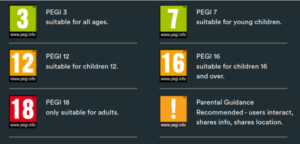
Report – this is a report button or feature that allows you to report directly to the game moderator if you see rules being broken or bad content. When reporting abuse, be sure to report the specific chat, private message, game or other content that violates the rules.
Activity 1: Playing Online
Step 1. Introduce today’s lesson on online gaming and explain to pupils that we are going to look at the benefits of playing online games and how we can have fun and stay safe while playing games online. Invite pupils to stand or sit in a circle. Explain to pupils that you are going to throw or roll the ball to a pupil and then ask a question. The pupil with the ball must then give one answer to the question and then pass the ball to another pupil. The recipient must catch the ball and respond to the same question. If a pupil is uncomfortable answering, he or she may pass the ball, knowing that it will eventually come back. The question for this round will be; name a game you like to play and one thing you like about playing that game? Explain that you may intercept the soft ball at any time to ask a new question and start a new round.
Step 2. Start a final round with the question; name one benefit or good thing about playing games. After the game has concluded and pupils are sitting at their seats, emphasise that playing games can be fun and entertaining; they let you use your imagination to create worlds and characters and tell stories; they encourage you to think creatively and to solve problems; they give you a chance to play with other people and learn to work together as a team. In this lesson we are going to look at this and how we can stay safe and choose the right games for us to enjoy playing games online.
Activity 2: HTML Heroes Short Story
Step 1. Display the HTML Heroes short story: ‘Archie plays Robo Warriors’ on the whiteboard while you read through the story.
Step 2. Once you have finished reading the story, go through the discussion questions to help pupils reflect on the internet safety scenario and safety messages discussed in the story.
Archie plays Robo Warriors – Discussion Questions:
Why did Archie not have permission to play Magician of Doom?
How did Archie feel when the stranger was asking him so many personal questions?
(a) Why do you think Archie had a funny sensation in his tummy?
(b) Do you ever feel worried or anxious? What happens to you? What kind of things can you do if you are feeling worried or anxious?
4. How did Archie’s mum react when he explained what had happened?
5. What big lesson did Archie learn in the story?
Activity 3: Archie in the Hot Seat
Step 1. Explain to pupils that we will now conduct a hot seat interview of Archie’s character in the story Archie plays Robo Warriors to further explore the situation he found himself in, consider how he was feeling and look at the positive and potentially risky and unsafe situation he found himself online. Arrange pupils in a circle and place a single hot seat in the middle of the circle. Pick one pupil to assume the character of Archie to sit in the hot seat. *To avoid putting vulnerable pupils in the decision-making position, consider you as the teacher taking the role of Archie in the hot seat.
Step 2. The rest of the class will think up challenging questions for the character Archie in the hot seat. Ask pupils to consider both the positive and potential risky and unsafe consequences in writing their questions, using prompt questions such as:
– What made Archie start to feel that something wasn’t right while chatting to ‘Jack’?
– Did talking to his mum help Archie?
– Should Archie ever play Robo Warriors again?
– What has Archie learned from this about playing online?
Alternatively, the above questions could be pre-printed and ready out by pupils. The pupil or teacher playing Archie is put in the hot seat and questioned by the other pupils. This can help pupils to feel empathy for Archie in his scenario.
Step 3. A debrief afterwards could involve asking pupils what they learned, what they found interesting and if they would challenge anything which the person in the hot seat said. Remind pupils that:
– Personal information means information that could be used to identify you, for example; your name, address, telephone number, your age, what you look like, your interests.
– Our personal information is what makes us unique.
– As this information is so special we should be careful about who we share it with when we meet people online and offline.
– Pupils should be advised to never share it without asking a parent or guardian first.
Activity 4: Archie and Ruby’s Top Tips for Playing Online Games
Step 1. Distribute Activity Sheet 1 for pupils to complete. Read through first with pupils and then allow 5 minutes for them to complete. Suggest for pupils who may not be able to write the words to draw a line to the correct matching word.
Step 2. Once pupils have matched the correct missing words on the Activity Sheet go through the answers and top tips with pupils to check their understanding of new vocabulary introduced in this lesson.
Activity 5: Reflection
Use the Plenary Activity Sheet (Emoji Exit Ticket) provided and ask pupils to write down one thing they learned about playing online today. Invite pupils to share their responses and recap with the following points:
– Playing games online is fun and can build important skills like team building and problem solving.
– There are a lot of options of games to play and people you could meet so it’s important to stay safe while playing games online.
– Here are some tips to help:
– Always check the age rating of the game before you play.
– Keep your profile private and don’t use real photos or your full name.
– Don’t give out personal information to people you only know online.
– Your password holds the key to your personal information online – Keep it private and only share it with your parents/guardian.
– If you see any bad stuff or rules being broken, report it.
– Never buy a game or pay for anything in the game without getting permission from your parents/guardians first.
– Talk to your pupils about the importance of asking permission before downloading a game. Encourage them to always tell a parent/guardian or trusted adult if something has happened online, even when they feel they may have done something wrong.
– Be aware that ‘free’ online games can offer additional functions, once the game is live, which users can purchase. Users typically make an in-app purchase in order to access special content or features in an app such as restricted levels, virtual money, special characters, boosts, etc. These hidden costs can lead to players inadvertently running up high bills on these games.
Supporting Materials
HTML Heroes
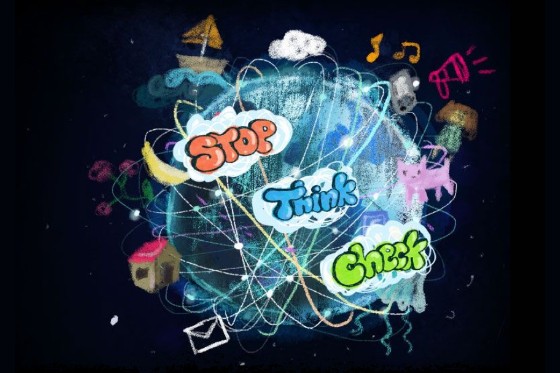
The HTML Heroes Programme has been designed for teachers of 1st and 2nd class to introduce pupils to the first steps of accessing and using the internet in a safe and responsible manner. The resource contains five lessons that can be explored separately or delivered as a whole unit.
The lessons explore using the internet safely, communicating online, playing and learning online, getting help and support. Each lesson is supported by a short illustrated story, lesson activities, and take-home information for parents/guardians. The programme concludes with an animated online safety code song. Get started using the materials below.
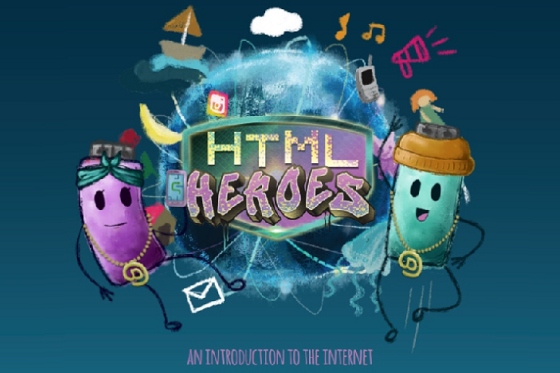
The HTML Heroes Programme is for primary school teachers who wish to introduce internet safety into SPHE for 3rd and 4th classes. Topics explored include respectful online communication, privacy, searching for information online, online well-being and screen time.
The programme is supported by interactive activities and 4 short animations featuring Ruby and Archie; the HTML Heroes who come to life when the classroom empties out.


